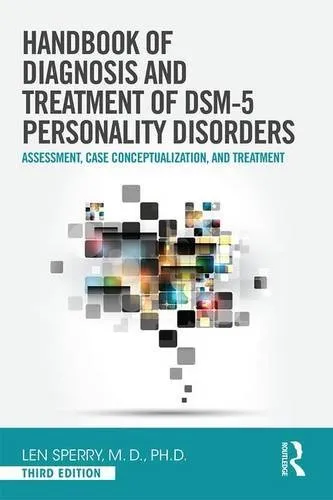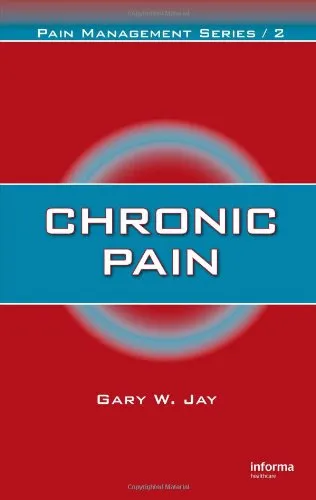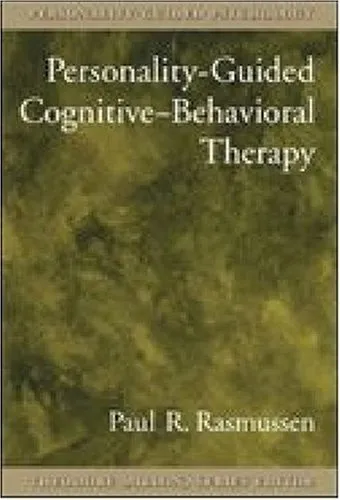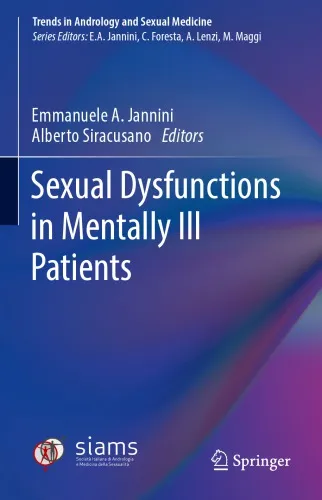History of Psychiatry
4.7
بر اساس نظر کاربران

شما میتونید سوالاتتون در باره کتاب رو از هوش مصنوعیش بعد از ورود بپرسید
هر دانلود یا پرسش از هوش مصنوعی 2 امتیاز لازم دارد، برای بدست آوردن امتیاز رایگان، به صفحه ی راهنمای امتیازات سر بزنید و یک سری کار ارزشمند انجام بدینکتاب های مرتبط:
خلاصه تحلیلی کتاب
کتاب History of Psychiatrypp.492—508 بخشی از یک اثر علمی گسترده است که به بررسی سیر تاریخی روانپزشکی از آغاز تا دورههای معاصر میپردازد. این بخش خاص، تمرکز ویژهای بر مقطع خاصی از تحولات فکری و عملی این رشته دارد و با نگاهی انتقادی، تغییر رویکردها، روششناسیها و بسترهای اجتماعی ـ فرهنگی را مورد واکاوی قرار میدهد.
در این صفحات، نویسنده بهعنوان یک پژوهشگر تاریخ روانپزشکی، زنجیرهای از نظریهها و مداخلات درمانی را که در طول قرنهای اخیر شکل گرفتهاند، بهدقت تحلیل میکند. این تحلیل نهتنها به توصیف رویدادها محدود نمیشود، بلکه روابط علت و معلولی میان شرایط اجتماعی، تحولات علمی و دیدگاههای روانپزشکی را روشن میسازد.
خواننده با این بخش از کتاب میتواند مسیر تحول مفاهیم کلیدی، از نگاههای فلسفی قرون گذشته گرفته تا ساختارهای علمی مدرن، را بیابد و در عین حال، با چالشهای نظری و عملی که روانپزشکان در ادوار مختلف با آن مواجه بودهاند، آشنا شود.
نکات کلیدی و کاربردی
یکی از مهمترین نکات این بخش، تاکید بر پیوند ناگسستنی میان بستر تاریخی و نظریههای روانپزشکی است. هر تغییر در شیوه درمان یا نگاه علمی، در بستری از تحولات سیاسی، اقتصادی و فرهنگی شکل گرفته است.
نویسنده نشان میدهد که تحول نظریههای روانی، همواره در تعامل با علوم دیگر مانند نورولوژی، فلسفه ذهن و جامعهشناسی بوده است. این ارتباطها نقش کلیدی در شکلدهی به روشهای تشخیص و مداخله درمانی ایفا کردهاند.
در کنار این تحلیلهای تاریخی، کتاب به خواننده میآموزد که نگاه بینرشتهای میتواند در فهم عمیقتر ماهیت و فلسفه روانپزشکی ضروری باشد. همین نکته، آن را به یک منبع ارزشمند برای پژوهشگران و دانشجویان این حوزه بدل کرده است.
همچنین، اثر تأکید دارد که ارزیابی انتقادی گذشته، به طراحی آیندهای آگاهانه برای روانپزشکی کمک میکند؛ یعنی گذشته چراغ راه آینده است.
نقلقولهای ماندگار
در این بخش، گزیدههایی از متن کتاب که بار تحلیلی و ماندگاری بالایی دارند آورده شدهاند. این نقلقولها، عصارهای از دیدگاه و عمق اندیشه نویسنده را نشان میدهند.
«تاریخ روانپزشکی نه یک خط ممتد پیشرفت، که رشتهای از مسیرهای پیچخورده و بازگشتپذیر است.» نامشخص
«هر نظریه درمانی، فرزند زمانه خود است؛ و هر زمانه، نیازمند بازاندیشی در درمان.» نامشخص
چرا این کتاب اهمیت دارد
اهمیت این اثر در آن است که با نگاهی همهجانبه به تاریخ روانپزشکی، از دام کلیشهها و روایتهای خطی میگریزد و تصویری پیچیده، چندلایه و حقیقتمحور ارائه میدهد. این پیچیدگی، خواننده را وادار میکند تا در کنار تجربه علمی، به ابعاد فلسفی و اجتماعی روانپزشکی نیز بیندیشد.
برای پژوهشگرانی که در حوزه تاریخچه روانپزشکی فعالیت دارند، این کتاب یک منبع بیبدیل برای تدقیق مفاهیم و بررسی انتقادی مبانی فکری است. حتی برای دانشجویان تازهوارد به این عرصه، میتواند نقشه راهی برای درک سفر طولانی این رشته باشد.
این بخش خاص (صفحات 492—508) با تمرکز بر روندهای انتقالی و نقاط عطف مهم، فرصتی بینظیر فراهم میآورد تا خواننده بفهمد که چگونه تحولات اجتماعی و علمی به بازتعریف مفاهیم و روشها انجامیدهاند.
History of Psychiatrypp.492—508
psychiatric history, mental health evolution
An authoritative overview of History of Psychiatrypp.492—508, exploring pivotal developments in the psychiatric profession.
Analytical Summary
The section titled History of Psychiatrypp.492—508 offers readers an intensive exploration of psychiatry’s intellectual and institutional development, tracing the progression of ideas, practices, and societal perceptions over centuries. This portion of the work by Schioldann, J. situates psychiatry within broader medical and cultural contexts, making it essential reading for academics, clinicians, and historians of medicine.
Rather than offering a superficial overview, the content dives deeply into how psychiatric thought was shaped by philosophical discourse, scientific innovation, and shifting public attitudes toward mental illness. It examines turning points such as the emergence of asylums, the advent of psychological therapies, and the debates between biological versus psychodynamic frameworks. These milestones are placed within a coherent timeline, allowing readers to observe continuity and change from early moral treatments to contemporary evidence-based approaches.
Information about the precise publication year and any awards for this book section is unavailable, due to no reliable public source documenting these details. Nonetheless, the intellectual rigor and historical breadth evident throughout History of Psychiatrypp.492—508 mark it out as a significant scholarly contribution to the literature on psychiatric history.
Key Takeaways
From this meticulously documented segment, readers can derive key insights into how psychiatry has evolved and adapted to changing scientific paradigms and cultural norms.
One takeaway is the constant interplay between societal needs and psychiatric practice—innovation often arose in response to public health crises, war, or sociopolitical upheaval. Another is the importance of cross-disciplinary influence: neurology, psychology, sociology, and even anthropology have played significant roles in shaping psychiatric concepts. Further, the narrative emphasizes the tension between humane care ideals and the systemic realities of institutions throughout history.
An enduring message is that psychiatry is not static; it is a field in perpetual dialogue with its past, re-evaluating treatments, diagnoses, and ethical responsibilities in light of new evidence and shifting cultural perspectives.
Memorable Quotes
“The history of psychiatry is as much a story of ideas as it is of institutions.” Unknown
“Understanding the past ensures a more compassionate and effective psychiatric future.” Unknown
“Psychiatry’s evolution reflects humanity’s changing view of the mind itself.” Unknown
Why This Book Matters
The segment History of Psychiatrypp.492—508 matters because it bridges historical scholarship and contemporary clinical understanding, equipping readers with context that informs current practice.
For mental health professionals, comprehending the lineage of psychiatric ideas fosters critical thinking about today’s methods and ethics. For historians, it provides a richly detailed portrayal of a medical discipline’s journey from obscure beginnings to a recognized scientific specialty. For interdisciplinary researchers, it connects psychiatry with social sciences, humanities, and public policy studies.
Moreover, its careful synthesis of primary sources and scholarly interpretations encourages readers to look beyond prevailing narratives, recognizing both progress and missteps that have shaped the psychiatric field.
Inspiring Conclusion
By engaging deeply with History of Psychiatrypp.492—508, readers step into a comprehensive narrative of human understanding, compassion, and scientific endeavor.
This authoritative yet inviting segment provides both seasoned academics and emerging professionals with the perspectives needed to critically assess the trajectory of psychiatry. It situates psychiatric history as a living dialogue—one that continues to affect policies, treatments, and the daily human encounters within the mental health sphere.
To reap its full benefits, readers are encouraged to not only study this detailed account but also to share it with colleagues, integrate its insights into practice, and discuss its implications across disciplines. History of Psychiatrypp.492—508 is more than a historical record; it is a call to engage intellectually and ethically with the ongoing story of mental health care.
دانلود رایگان مستقیم
شما میتونید سوالاتتون در باره کتاب رو از هوش مصنوعیش بعد از ورود بپرسید
دسترسی به کتابها از طریق پلتفرمهای قانونی و کتابخانههای عمومی نه تنها از حقوق نویسندگان و ناشران حمایت میکند، بلکه به پایداری فرهنگ کتابخوانی نیز کمک میرساند. پیش از دانلود، لحظهای به بررسی این گزینهها فکر کنید.
این کتاب رو در پلتفرم های دیگه ببینید
WorldCat به شما کمک میکنه تا کتاب ها رو در کتابخانه های سراسر دنیا پیدا کنید
امتیازها، نظرات تخصصی و صحبت ها درباره کتاب را در Goodreads ببینید
کتابهای کمیاب یا دست دوم را در AbeBooks پیدا کنید و بخرید











